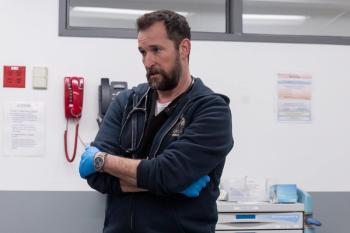
Health equity is a journey, and these hospitals are leading the way
Boston Medical Center and University of Chicago Medicine ranked high in the Lown Institute’s list of racially inclusive hospitals. Leaders share their insights.
Some rankings are designed to recognize excellence, and some are also intended to inspire change.
The Lown Institute seems to be aiming for both goals in its compilation of America’s most racially inclusive hospitals. The think tank released its list of the 50 most inclusive hospitals Tuesday, with Boston Medical Center earning the top spot.
The institute also led a discussion about how other hospitals can follow their lead. In an online panel discussion, healthcare leaders talked about steps to improve health equity.
Selwyn O. Rogers Jr., founding director of the University of Chicago Medicine Trauma Center, noted that his office sits in Chicago’s Washington Park neighborhood. In Chicago’s affluent Streeterville area, residents have a life expectancy that is 16 years longer, he notes.
“A 16-year life expectancy gap, separated by eight miles of distance in one city, a great city called Chicago,” Rogers said.
- Read more:
Health equity ‘can’t be a side hustle’
‘It shouldn’t be this way’
Elena Mendez-Escobar, co-director and executive director of strategy at Boston Medical Center’s Health Equity Accelerator, suggested it’s all too easy to become accustomed to seeing disparities in life expectancies and other outcomes involving minority groups and those without insurance.
“People expect these differences to exist, and sometimes that can paralyze us,” she said. “It shouldn’t be this way.”
Mendez-Escobar said it will take effort and intentionality to improve health equity.
Even with Boston Medical Center landing in the top of the rankings of racially inclusive hospitals, Mendez-Escobar says there’s plenty of work to do.
“I wouldn’t dare to say we’ve solved this problem,” Mendez-Escobar said.
But she said one lesson the medical center has learned is “getting out of our lanes and going upstream.”
“Many of these issues are so rooted in barriers to economic mobility that black communities, Hispanic communities have faced for decades, and we need to change those at the top,” Mendez-Escobar said.
“This can take many forms, from including financial coaching and financial services and products in our healthcare system, to being very thoughtful about who we employ, how we employ them, who we're promoting, and our role as one of the biggest employers in most of our areas. We can have a huge difference in this.”
Mendez-Escobar pointed to a
“That has really accelerated how quickly we can diagnose preeclampsia and how quickly we can treat it because we're building real agency in the patients,” she said.
She also talked about the importance of viewing health equity not as a luxury but as an essential component to quality care.
“There are so many other instances in our healthcare systems where we see we can do more to avoid delays in when cancers are screened and diagnosed, when treatment is initiated and navigating patients to their options quickly, and really enabling real agency of patients by sharing information with them about their conditions, the resources that are available in a timely manner and in a way that is relevant for them and for their daily lives on their communities,” Mendez-Escobar said.
‘Embed equity in everything’
UChicago Medicine ranked third on the list of the most inclusive hospitals, but as Rogers said, it’s not good enough to be number three.
“It’s a journey, not a destination,” Rogers said. “This is not one of those things where you ever arrive.”
He spoke not in terms of the rankings but in terms of improving equity.
“It's never, rest on your laurels, we're here, we're number three, we're good enough,” Rogers said. “No, no, no, no, no. This is constant, constant vigilance, to embed equity in everything that we do, our policies, our approaches, our access.”
When asked about making progress, Rogers began with the word “community.”
“You have to relate to the community in which you live,” he said.
UChicago Medicine leaders get guidance from an advisory panel made up of 20 members of the community, Rogers says. “I think that's a very important tactical approach to get at what the community thinks they need,” he says.
The guidance from the community group played a key role in UChicago’s Urban Health Initiative, which is aimed at improving outcomes in Chicago’s South Side.
Rogers also spoke about the importance of being “intentional,” which includes measuring key performance indicators of quality care and evaluating patient measures by race, ethnicity and socioeconomic status if possible.
“You have to be willing to measure this stuff,” Rogers said.
He also said health systems can’t be deterred by the magnitude of the challenge of improving health outcomes.
“Just because it's hard doesn't mean we shouldn't do it,” Rogers said.
Rogers added that while the past can’t be changed, “We can influence the future.”
“I think in the context of that intentionality, about how do you design programs? How do you measure things that affect real people, in real communities, in their real lives?”





























































































